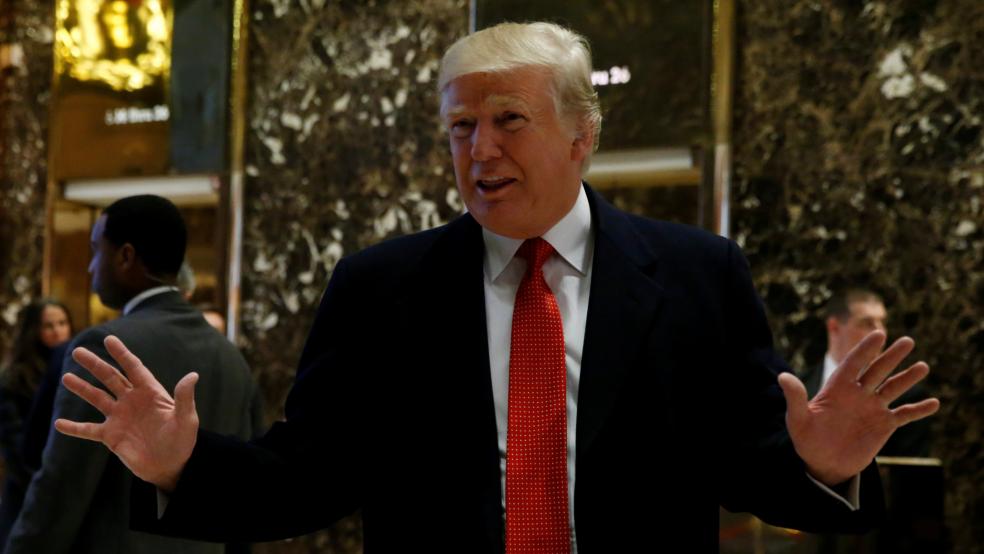Personnel is policy, Richard Nixon’s budget chief Michael Horowitz remarked after the 1972 election, when the re-elected incumbent asked for resignations from two thousand of his appointees. The OMB director meant that the direction of any administration could best be determined by the people hired by its leader. Based on the key appointments made thus far by the new President-elect, America should prepare itself for a new conservative era – and an about-face from the last eight years.
Barack Obama won the presidency in 2008 by promising “hope and change” to a nation weary of the George W. Bush presidency, the war in Iraq, and the financial-sector collapse that demolished hundreds of thousands of jobs a month leading up to the election. Eight years later, Republicans now control the House, Senate, a record number of state legislatures and Donald Trump has won a surprise victory over Hillary Clinton. Voters have rejected the Obama era –- and Trump’s key personnel choices promise to deliver change for them in 2017 in nearly every policy arena.
Related: Trump the Populist Could Have the Wealthiest Cabinet in US History
The first obvious indication of policy direction came with the appointment of Jeff Sessions as Attorney General. The conservative Senator from Alabama has been a proponent of hardline immigration enforcement, as has Trump himself. Sessions has also been a particularly sharp critic of Department of Justice policy and actions under his predecessors Eric Holder and Loretta Lynch, and especially during the investigations involving Hillary Clinton.
Next, Trump chose Rep. Tom Price to run Health and Human Services. Price has not just opposed Obamacare – he has written legislation to replace it. Price has demanded a rollback of the regulatory expansion associated with the Affordable Care Act, in particular where it infringes on religious liberty. Trump had suggested prior to the Price appointment that he might be open to “amending” Obamacare rather than repealing it, but putting Price in charge of HHS strongly suggests an active rollback of its regulations while Congress plans the best way to eliminate it altogether.
Two more recent additions to Trump’s domestic policy team make the change of direction even clearer. His choice of Labor Secretary, Andy Puzder, comes from the boardroom rather than from the ranks of activists and of the public sector, as did Tom Perez and Hilda Solis in Obama’s presidency.
Related: Another Learn-on-the-Job Cabinet Nominee: Ben Carson to Run HUD
However, the most stunning turnaround takes place outside of the Cabinet at the EPA, where Oklahoma Attorney General Scott Pruitt will take the helm. Pruitt has spent the past few years suing the Obama administration and the EPA itself to fight the expansion of federal power at the expense of state jurisdiction. (The New York Times accused Pruitt of being a “climate change denialist” in its headline, but the report itself shows Pruitt encouraging debate on the issue.) Pruitt’s nomination promises an energetic rollback of Obama’s expansion of regulation through the Waters of the US rule and the Clean Air Act, two mechanisms used by the EPA to assert near-total jurisdiction independent of any Congressional mandate.
On national security, the message might be subtle, but no less clear. The Obama administration preferred to deal with terrorism from a law-enforcement perspective rather than as a military challenge. Early on, the administration tried changing the terms used to de-emphasize military implications; “terrorist attack” became “man-caused disaster,” then-Homeland Security Secretary Janet Napolitano told Der Speigel in March 2009. In the same month, the Department of Defense’s office of security review sent a memo to senior Pentagon staff members informing them that they should no longer refer to a “global war on terror,” but to “overseas contingency operations.”
Almost eight years later, Trump has nominated three retired generals to run key national-security positions: Gen. Michael Flynn as his national security adviser, Gen. James Mattis as Secretary of Defense, and Gen. John Allen as Secretary of Homeland Security. Some in Congress have raised questions about the influence of so many retired flag officers in Cabinet positions, but Trump has signaled that he sees threats against US interests at home and abroad in military rather than law enforcement terms. All three have reputations for independence and bluntness, and none are likely to put much time into finding comforting euphemisms for the threats we face.
Related: Trump’s Choice to Head EPA Would Roll Back Environmental Regulations
Conservatives had expressed considerable reservations about Trump’s professions of conservatism, during both the primary and general-election campaigns. In the days after the election, Trump’s meetings with Obama on the ACA and with Al Gore on climate change prompted renewed concerns about Trump’s true direction. Even while the first few nominations got announced, some wondered whether they reflected vice-president-elect Mike Pence more than Trump, and when other shoes would begin to drop.
So far, though, Trump seems intent on creating the most conservative and business-oriented Cabinet in decades. If Horowitz was correct and “personnel is policy,” then conservatives should find themselves pleasantly surprised and encouraged thus far with a 180-degree change of direction these key appointments promise. The inauguration on January 20th marks the date in which conservatives might find their own version of hope and change.






